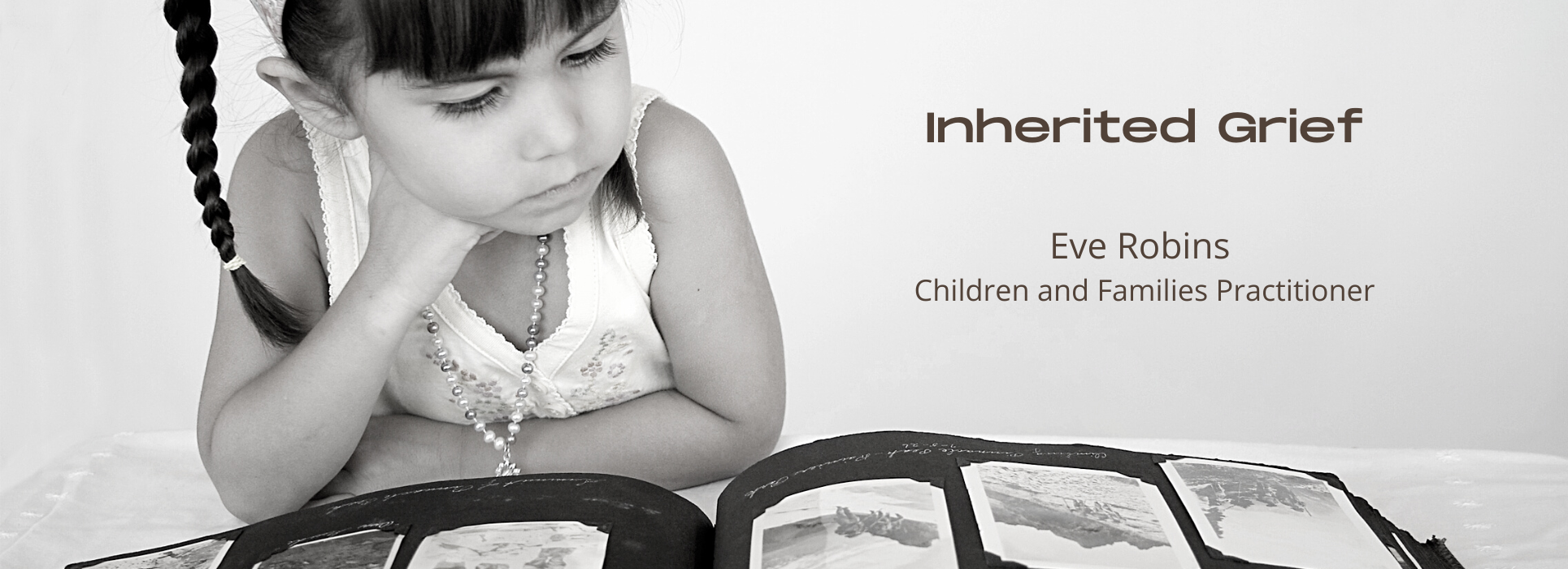Inherited Grief
If a parent dies when a child is a baby or even before they are born, the grief the child experiences as they mature can be complicated by the fact that they do not have any first-hand memories of their loved one. However, this not to say that they do not experience the pain of the loss and grieve for the life that they could have had with that special person. The longing for that parent might still be acutely felt. Children might sense the difference that they feel because they don’t have a daddy or mummy, but the child will not necessarily feel the same sense of missing the person, because they cannot draw on personal memories and experience.
When grieving for someone that they did not know or cannot remember, children can sometimes “inherit grief” from their family and close friends so that their experience of grief is one step removed. They may take on the grief of those around them, becoming upset by other’s distress or feeling the need to protect and console their loved ones. Children are often finely tuned to their care giver’s emotions, so this is to be expected to some extent; however, they may not actually be experiencing their own grief for the person who died, instead they are picking up on the emotions in the home.
Some children might feel left out of the collective grief experience, especially if there are older siblings in the family who remember the person and talk freely about memories special to them. It can be confusing for children to experience their family members grieving, but not necessarily feeling upset themselves. Children may have a range of feelings such as guilt, confusion, sadness or in fact they may feel numb or empty. All of these feelings are normal, but if a parent is worried about their child, there are ways in which they can be helped:
- Don’t be afraid to talk about the person who has died, look at photographs or videos together and relate memories of a happier time. By doing this, you will enable the child to feel connected to the person and begin to have a sense of who they were. We often talk about ‘continuing bonds’ and the fact that you can still have a relationship with the person even though they have died. This can be achieved by keeping their memory alive
- Children like to hear stories of how they may be similar to their parent, such as liking the same food, same music or having the same sense of humour.
- It might be helpful to give them a piece of clothing or some perfume or aftershave of the person that has died. Sensory memories are very strong, and children may find comfort from these items.
- Also, it might be helpful to ask other family members (grandparents perhaps) to recall their memories of the person, writing them down is often a good idea, so that the child can refer to them in their own time and at their own pace.
- School staff can help children if they know the family situation. Remember to tell the staff about the death, even if it was years ago. Difficult days such as Father’s Day or Mother’s Day can then be dealt with sensitively and the child will have their loss acknowledged.
One thing to remember as a parent, is that a child’s experience of the death will not be the same as your own. They probably will not feel the pain so acutely and will not have the memories to draw on for comfort. It is good to be mindful of this and resist the temptation, however much you are hurting, to assume that they are feeling the intense and painful feelings that you might experience.
Children may have a neutral response or not react in the way that you expect them to. Some children might be very inquisitive, others less so. Every child is unique and will deal with their situation in their own way. Having family members and friends around them to talk to can help to heal the pain of the loss. Allowing the child to have fun times and forget about their situation is also important for healthy grieving.
From our experience of talking to families at SeeSaw, children often address their grief at different stages of development and might feel the need to talk to someone years after the death. Their growing sense of self and identity can be strengthened if they have a sense of who their parent was and what they were like so that they can ‘get to know’ them in a deeper way.

